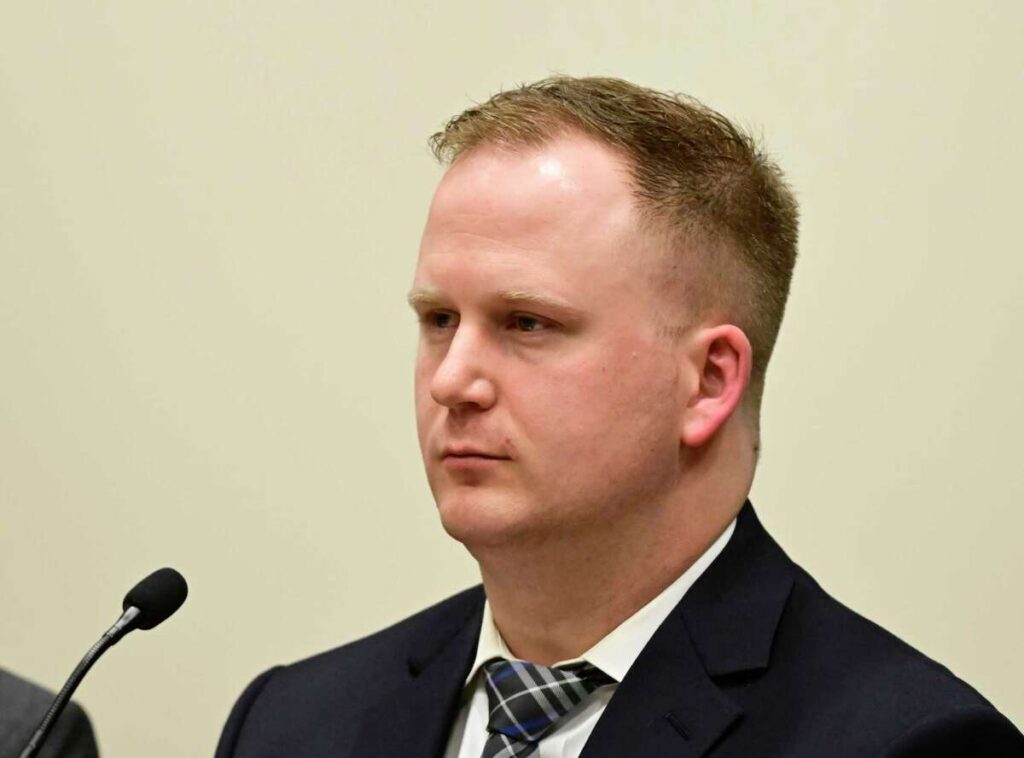
A Colorado prosecutor told jurors in closing arguments Friday that a police officer who stopped Elijah McClain, put the 23-year old Black man in a neck hold and then abandoned him as his condition deteriorated should be convicted of manslaughter in his 2019 death.
Aurora Officer Nathan Woodyard is among three officers and two paramedics charged in the death of McClain after protests over the 2020 killing of George Floyd renewed interest in the case. The trial against the two other officers resulted in a split verdict last month with one convicted of homicide and one acquitted.
Woodyard was the first officer to confront McClain as the massage therapist walked home from a convenience store in the Denver suburb of Aurora. A 17-year-old 911 caller had reported McClain — who was listening to music, wearing a mask and dancing as he walked — as suspicious.
“Elijah McClain was walking home, he was dancing. As he told the defendant he was stopping the music to listen,” Colorado Assistant Attorney General Jason Slothouber told jurors. “There was no need for this escalation of violence.”
Woodyard put McClain in a neck hold that rendered him temporarily unconscious after he allegedly resisted and went for another officer’s gun — a claim prosecutors disputed. McClain was later injected with a fatal overdose of ketamine by paramedics.
“We need to end in-custody deaths. There’s been too much violence and the world will be a better place when that happens. These important facts don’t conflict with the fact that Nathan Woodyard did not kill Elijah McClain,” Ho said. “It’s the ketamine that killed Elijah McClain.”
Woodyard also faces a lesser charge of criminally negligent homicide. He could be sentenced to years in prison if convicted on either charge.
McClain’s mother, Sheneen, sat in the front row as the attorneys made their arguments to the jury.
Sheneen McClain had expressed disappointment after the first trial last month. It ended with officer Jason Rosenblatt acquitted of all charges and officer Randy Roedema convicted of the least serious charges he faced — criminally negligent homicide and third-degree assault — which could lead to a sentence of anywhere from probation to prison time.
Paramedics Jeremy Cooper and Lt. Peter Cichuniec are scheduled to go on trial later this month. They have pleaded not guilty.
The coroner office’s autopsy report, updated in 2021, found McClain died of an overdose of ketamine that was given after he was forcibly restrained by police. While it found no evidence the police actions contributed to McClain’s death, prosecutors presented their own medical expert who said there was a direct link. Dr. Roger Mitchell of Howard University, the former Washington, D.C. coroner, said the police restraint caused a series of cascading health problems, including difficulty breathing and a buildup of acid in McClain’s body.
Prosecutors have also argued that the police encouraged paramedics to give McClain ketamine by saying he had symptoms, like having increased strength, that indicate a controversial condition known as excited delirium that has been associated with racial bias against Black men.







